 Petzlover
Petzlover Alano Espanol is originated from Spain but Samoyed is originated from Russia. Both Alano Espanol and Samoyed are having almost same height. Alano Espanol may weigh 10 kg / 23 pounds more than Samoyed. Both Alano Espanol and Samoyed has same life span. Both Alano Espanol and Samoyed has same litter size. Alano Espanol requires Low Maintenance. But Samoyed requires Moderate Maintenance
Alano Espanol is originated from Spain but Samoyed is originated from Russia. Both Alano Espanol and Samoyed are having almost same height. Alano Espanol may weigh 10 kg / 23 pounds more than Samoyed. Both Alano Espanol and Samoyed has same life span. Both Alano Espanol and Samoyed has same litter size. Alano Espanol requires Low Maintenance. But Samoyed requires Moderate Maintenance
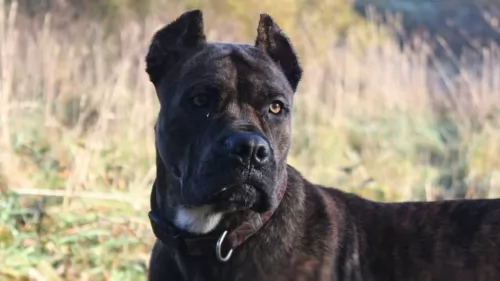 Alano Espanol is a very old breed and first data originate back in the 5th century. Alano has been used as dogs for war and dogs that traveled with explorers. After some, time Alano Espanol becoming more and more popular for bullfights and wild boar hunting. Nowadays, Alano Espanol is still not recognized worldwide, but it seems like this breed is getting more and more popular. They are excellent hunters and amazing working dogs.
Alano Espanol is a very old breed and first data originate back in the 5th century. Alano has been used as dogs for war and dogs that traveled with explorers. After some, time Alano Espanol becoming more and more popular for bullfights and wild boar hunting. Nowadays, Alano Espanol is still not recognized worldwide, but it seems like this breed is getting more and more popular. They are excellent hunters and amazing working dogs.
 The Samoyed is a large breed of dog; a spitz-type dog, with a thick, double-layer coat. The dog was used to help with herding and to also haul sledges for the Siberian Samoyede people.
The Samoyed is a large breed of dog; a spitz-type dog, with a thick, double-layer coat. The dog was used to help with herding and to also haul sledges for the Siberian Samoyede people.
The Samoyed has been used in polar expeditions, including Sir Ernest Shackleton's journey to the Antarctic. They’ve put up with a lot of hardships on these journeys and some of them have lost their lives on these expeditions.
The first standard for the breed was adopted in England in 1909, and in 1923 the original Samoyed Club of America was established.
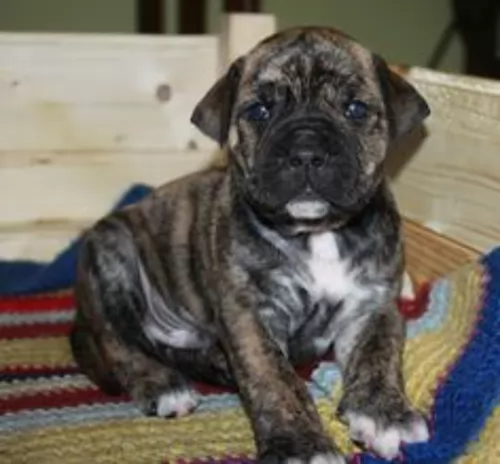 On average, Alano Espanol approximately weights 34-40kg, while their average height is 56-64cm. Females are slightly smaller than male dogs.
On average, Alano Espanol approximately weights 34-40kg, while their average height is 56-64cm. Females are slightly smaller than male dogs.
A lifespan of Alano Espanol variates but on average it is 11 to 14 years.
Litter Size is 4-8 puppies, but it depends on every dog.
Other Names for Alano Espanol are Spanish Bulldog and Spanish Alano.
 The Samoyed is a large herding dog standing at between 48 to 60cm in height and weighing 16 – 30kg. He has a thick, double layer coat that is silvery white.
The Samoyed is a large herding dog standing at between 48 to 60cm in height and weighing 16 – 30kg. He has a thick, double layer coat that is silvery white.
The top layer is fairly long and coarse. The dog sheds heavily once or twice a year, but the dog is described as being hypoallergenic.
The ears of the dog are typical spitz-like – erect. The eyes of the dog are almond in shape and while they are usually brown, they can sometimes be blue too. The tail is long and curls over the dog’s back. When these dogs sleep in the snow, you might notice the tail is folded so that it covers the dog’s nose.
The Samoyed is a friendly dog, to such an extent that you wouldn’t call him a good watchdog. They’re friendly dogs with happy expressions on their faces. They make great family pets and will get on well with children as well as other dogs in the home.
Like all dogs, the Samoyed will need early training and socialization to make him obedient and well rounded. He is intelligent and can easily learn a few basic commands.
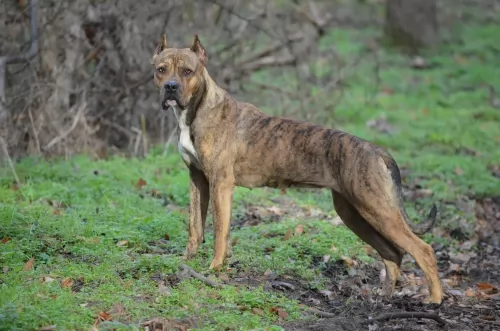 Alano Espanol is an extra-large breed but they are very well balanced breed and they tend to be very reliable and calm. They are not very comfortable living in the small apartments. They are better in houses. They are also very good with kids. Alano Espanol needs a lot of daily exercise with a minimum of 3 walks per day. Even though people used them for dogfights and bullfights through the history. They are not recommended for the first time owners because they are strong-willed dogs who tend to be leaders in the pack. Strong will and constant training are very important for them. They are very dominant breed and have Alpha character. Socialization is also very important for Alano Espanol because they are very powerful and they can easily hurt other animals. They will listen the master but it is important that they play and socialize with other animals from very young age. Alano Espanol can be a very good with other animals even in the same household, but only with proper socialization. If the dogs are the same sex, they tend to show dominance. Basically, they can be amazing pets, but it is important to train them properly.
Alano Espanol is an extra-large breed but they are very well balanced breed and they tend to be very reliable and calm. They are not very comfortable living in the small apartments. They are better in houses. They are also very good with kids. Alano Espanol needs a lot of daily exercise with a minimum of 3 walks per day. Even though people used them for dogfights and bullfights through the history. They are not recommended for the first time owners because they are strong-willed dogs who tend to be leaders in the pack. Strong will and constant training are very important for them. They are very dominant breed and have Alpha character. Socialization is also very important for Alano Espanol because they are very powerful and they can easily hurt other animals. They will listen the master but it is important that they play and socialize with other animals from very young age. Alano Espanol can be a very good with other animals even in the same household, but only with proper socialization. If the dogs are the same sex, they tend to show dominance. Basically, they can be amazing pets, but it is important to train them properly.
 The Samoyed is a gentle, easy going dog that gets on well with everyone, loving children and being prepared to be friendly towards other dogs too.
The Samoyed is a gentle, easy going dog that gets on well with everyone, loving children and being prepared to be friendly towards other dogs too.
His friendliness makes it that he doesn’t make a good watchdog. He is intelligent and can be trained to obey basic commands.
He loves plenty of exercise, after all he has always been a working dog. Apart from the coat which will require quite a bit of upkeep, the Samoyed is prepared to come into your home and make you a splendid pet and companion.
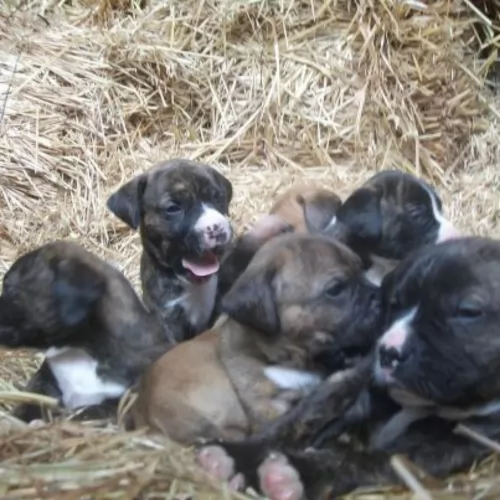 Alano Espanol is a very strong and healthy breed. They do not have any major health issues. Aldo, as with every large breed you should be careful of dogs genetic because they might have dysplasia. However, they are very healthy dogs with no health issues so your dog will live happy and healthy life with a proper care and occasional vet examination.
Alano Espanol is a very strong and healthy breed. They do not have any major health issues. Aldo, as with every large breed you should be careful of dogs genetic because they might have dysplasia. However, they are very healthy dogs with no health issues so your dog will live happy and healthy life with a proper care and occasional vet examination.
 Dogs can get diabetes just like people can. Diabetes is becoming more common in dogs as people try and feed their dogs ‘treats’ such as chocolates, biscuits and ice-cream.
Dogs can get diabetes just like people can. Diabetes is becoming more common in dogs as people try and feed their dogs ‘treats’ such as chocolates, biscuits and ice-cream.
Fortunately diabetes is manageable. Certainly, if you discover signs of diabetes in your pet, get him to the vet. The typical symptoms of diabetes in dogs are increased urination, increased thirst and weight loss. Cataracts and blindness can also occur.
Glaucoma is when there is increased pressure in the eye. It can be hereditary or secondary where there is decreased fluid in the eye because of other eye diseases. Symptoms include pain and even vision loss. It can be treated surgically or with eye drops.
This is an inherited condition in dogs where the thighbone doesn't fit properly into the hip joint. Some dogs will even have lameness in both rear legs. The vet will want x-rays to diagnose hip dysplasia. Unfortunately arthritis can also develop.
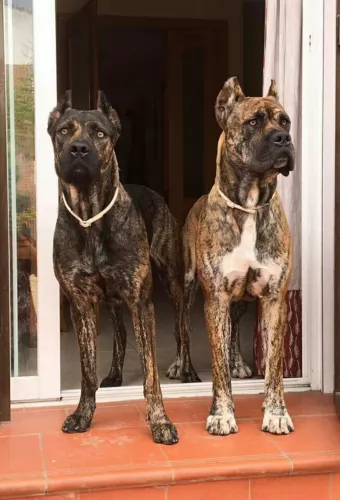 Feeding habits of any dog depend on daily activity and size. Alano Espanol should eat approximately 4-5 cups of high-quality food divided into two meals. You can also add some vegetables, fruit, oil or basically anything that you see your dog enjoy eating.
Feeding habits of any dog depend on daily activity and size. Alano Espanol should eat approximately 4-5 cups of high-quality food divided into two meals. You can also add some vegetables, fruit, oil or basically anything that you see your dog enjoy eating.
Alano Espanol puppies need more food divided into 3-5 meals per day. It is very important that puppy has all the necessary vitamins and minerals to develop into a big and healthy adult.
Alano Espanol is a very easy breed to groom. They have short hair with no undercoat, so minimal grooming is all that it takes. Alano does not drool, so it is not very hard to keep them clean. They will need occasional baths, but only when they are dirty because if you bath your dog too much, the skin could dry and start to itch.
 The coat of the dog is super thick and in the Spring, the dog sheds a lot. Samoyed dog owners will need to be regular with their brushing routine with these dogs as the coat can easily tangle. Some people just prefer to get their Samoyed to a professional groomer.
The coat of the dog is super thick and in the Spring, the dog sheds a lot. Samoyed dog owners will need to be regular with their brushing routine with these dogs as the coat can easily tangle. Some people just prefer to get their Samoyed to a professional groomer.
This is a working dog, used to working hard in all kinds of conditions. He doesn’t take kindly to being bored with nothing to do and he howls and barks till you take him on a walk. He requires regular exercise such as hiking, ball games, running and swimming. It is why this dog isn’t suited to life on a small property in the city. He requires a large garden or farm and lots of exercise.
If you want your Samoyed to be healthy so that you’re not constantly at the vet, provide him with top quality food. It is always useful and convenient having commercially manufactured food but you want to vary the diet just a bit by providing some homemade food too.
If you boil chicken, brown rice or pasta and spinach, sweet potatoes and carrots in a pot you can chop it all up and freeze it and feed portions twice a week to your dog. Warmed up it can be added to his dry kibble and be a wonderful tasty treat for him. Every now and then you can also include some raw meat which can be beneficial for his skin. Ensure there is always a bowl of fresh, cool water within his reach.